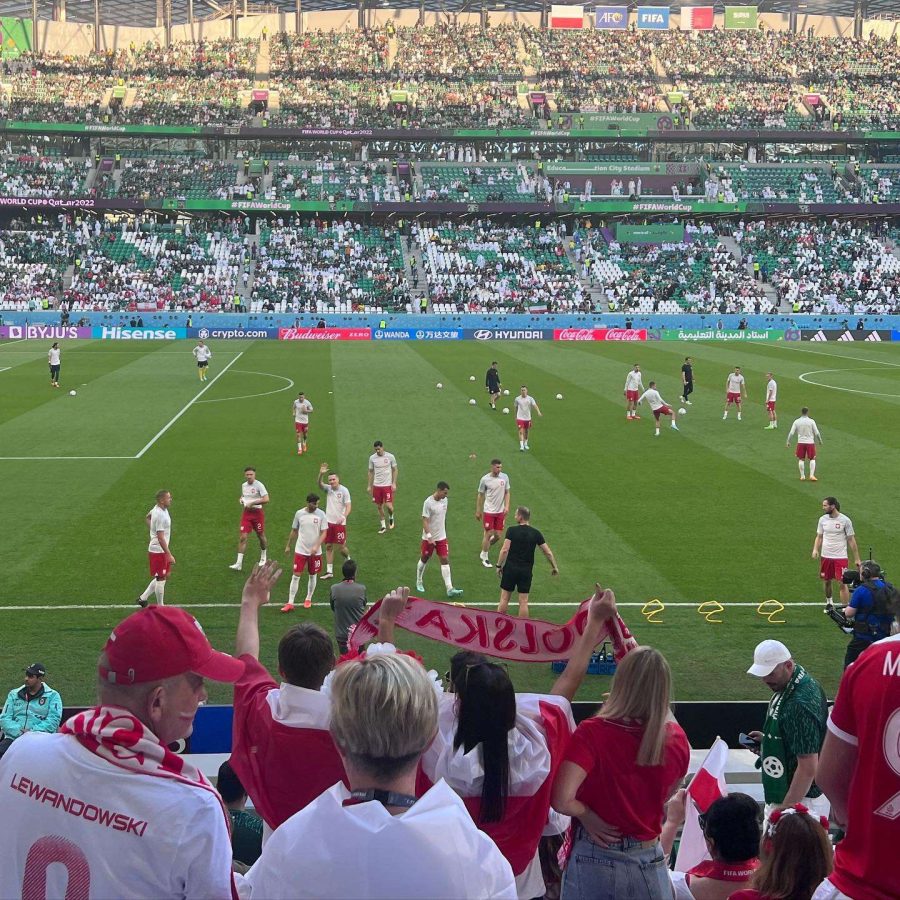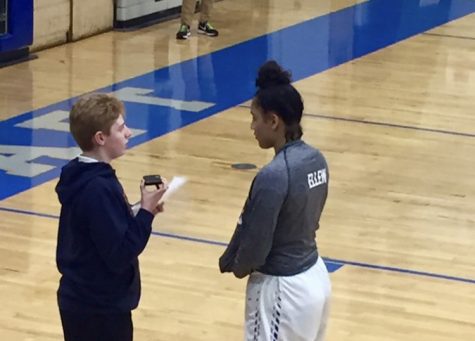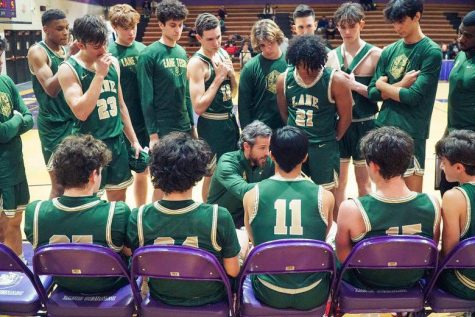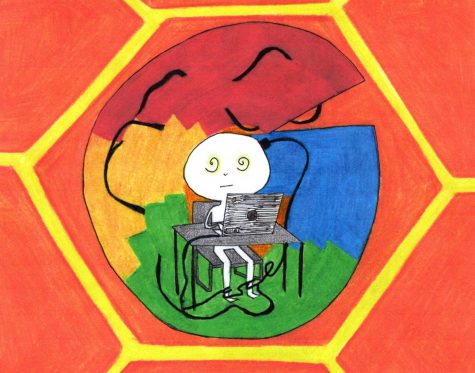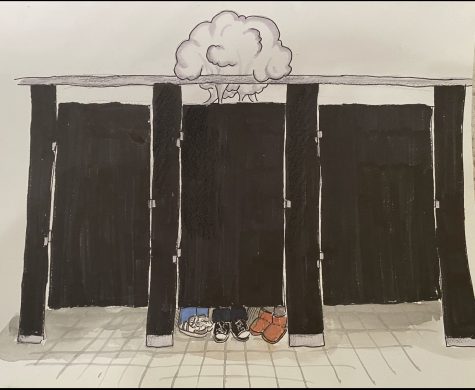The game of unity: how the World Cup and soccer unites us all
Fans of Poland’s national football team root their team on from the stands of the Lusail Stadium in Doha, Qatar. (Photo courtesy of Kamil Pluta)
December 19, 2022
Turf, cleats, shin guards, goals, anxious players and thousands of rowdy and impassioned fans: this is what makes soccer one of the most exciting sports on earth.
“Soccer is the most popular sport, and for good reason too,” senior soccer player Laila Miranda said. “There is so much passion that I believe is not seen in any other sport at such a global scale. I believe that soccer is a culture in itself and it brings many different cultures together to enjoy.”
Every four years, soccer players from around the globe unite under the colors of their home countries and battle it out over the course of a month, to see which country can claim the title of world champions.
The last World Cup, which took place in the summer of 2018, ended with France claiming victory over Croatia in the finals. Now, the 2022 World Cup has concluded with Lionel Messi and Argentina beating France in the finals in a penalty shootout after France and Argentina tied 3-3.
However, the World Cup is much more than a tournament where 32 national teams fight over a title and trophy. No, the World Cup is a global unification of sorts, bringing together countries and fans from every continent on Earth to root for their home teams, for each other and to share and cherish in the joy and excitement that is the World Cup.
Susan Sebestyen, a teacher in the history department and 22-year Lane vet, says that the student body’s interest with this year’s World Cup is nothing like she’s seen before.
“I’ve not seen this much interest. I’ve not seen this many kids deeply involved in it,” Sebestyen said.
The student body’s enthusiasm with this year’s World Cup can be felt, seen and heard all across the school. Students watch the games in class on their phones or laptops while teachers ask for updates on the score. On game days, many students can be seen across the halls wearing an array of jerseys for the teams they’re rooting for, mostly in correlation to the student’s ethnicity and heritage.
Miranda even admits that she has to watch most of the games during class in order to keep up with the tournament.
“Me and my family have watched almost all the games of this World Cup. I’ve tried to watch all the games but most of them have occurred during class so I have to sneak watch it at times. Can you blame me though?” Miranda said.
And while the World Cup is definitely a fun way for all of Lane’s community to unite over one common interest, the gameplay does have the tendency to interrupt class time for teachers across the school.
“Look, I’ve got a foot in both worlds here,” Sebestyen said. “I love that [the students] love something. I love that they have something to share. I love that this is a new interest that I’ve seen at Lane that I’ve not seen in the past. But I also wish that they were a little more judicious with how they watched the games.”
Students’ excitement over the World Cup cannot only be seen and felt at home and in the classrooms; it expands worldwide. It even travels so far that it reaches the city of Doha, the capital of Qatar, where the 2022 World Cup is being held.
Senior Kamil Pluta got the opportunity to spend around 10 days in Doha and attend multiple World Cup matches. Pluta said that the overall experience of traveling to Qatar was interesting and that it was cool to see many people together all in one place.
“It was really loud. Like, I think the atmosphere was incredible. The fans cheering for the countries was like something really cool to be a part of,” Pluta said.
Though Pluta stayed close to other tourists, he said that it was nice to experience a different culture while in Qatar.
One thing that truly stuck with Pluta was the sheer amount of admiration from the crowd for Argentinian soccer player Messi.
“One thing I won’t forget is after Messi scored his goal, the whole stadium was like bowing and chanting ‘Messi!’ And I thought that was a really cool thing to see. They seemed like they treat Messi as a god, in a way. And that was like really cool to see,” Pluta said.
From his experience as both a soccer player on Lane’s varsity team and a soccer fan who got to experience the World Cup, Pluta said that the World Cup unites people from all nationalities and ethnicities.
“I’m a Polish and a USA fan,” said Pluta, who added that he was able to connect with fans from different countries— even at games that did not involve Team USA or Poland. “And even after Poland lost to Argentina we were still able to congratulate each other, like with Argentina, for getting through [to] the next round.”
Like Pluta, both Miranda and senior Grant Kelner are soccer players who are passionate about the World Cup and the game of soccer in general.
“Soccer has always been important to my family,” Miranda said. “Both my siblings play, my cousins play and my entire family watches the World Cup every time it occurs.”
Both Miranda and Kelner are devoted fans to the games and try to watch as many games as they can. They also see the World Cup as more than just a tournament.
“Most definitely, I think that the World Cup is a coming together of people in every nation that participates,” Kelner said.
While Miranda thinks that the World Cup is more than a game she sees the competition’s importance more so from the perspective of the players.
“The World Cup is only every four years and each World Cup brings something new — old players’ last World Cup and new players looking to bring their name to fame, pride being the most driving factor because all players are looking to make their country proud,” Miranda said.
Yet despite this national pride that motivates fans to watch the games, when it comes to the World Cup, many people will say that it is a beacon of unity and truly a universal sport.
“I think that it’s just so different from baseball and football and basketball, all of which have their strengths and their weaknesses,” Sebestyen said. “But yeah, I think this one has a different flavor about it, and I think it is the diversity and the wide groups of people that follow it. It’s not just boys. It’s not just girls. It’s not just one ethnicity. It’s not just one background. It’s bringing in a lot of different voices. So yeah, I admire that.”
Kelner also noted the bonding element that the sport provides.
“I have met most of the people I know from soccer and I know many others can say the same. It truly is a beautiful game in the way that it brings people together and helps unite the world,” Kelner said.
And though it may seem as if the whole world is going World Cup crazy, it is all in good fun and for good reason. The world has changed drastically since countries last united for the 2018 World Cup. Yet just for one month every four years the whole world gets to come together. The World Cup is a truly unique event that unites the entirety of the globe and brings humanity together for the love of soccer, the love of football and the love of each other.
Integrating together as one not under a flag, borders or social constructs but as human beings… that is the beauty of humanity and the beauty of the FIFA World Cup.

